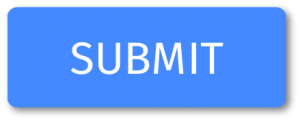Many job seekers consider interviews as the most nerve-racking part of job hunting. But the truth is it’s just second to the anxiety of not hearing back from the recruiter after your interview.
Despite the general doubts over the impact of a thank you note after a job interview, sending a good follow-up email helps to:
- Keep you calm while waiting for the response (and stay patient)
- Provide value-added information that you missed out during the previous interview
- Smooth over unfavourable answers
- Build connection with your potential employer
- Demonstrate your writing skills

You probably think that a follow-up email makes you appear too desperate (for a job), or that it may annoy the recruiter because they must have received tons of them already.
Well, you shouldn’t think that way.
When you send a post-interview email, you essentially remind the hiring manager of who you are. That little reminder will complement your interview performance and improve your candidacy for the position.
Here’s the ultimate guide to follow-up after your job interview.
Scenario 1: You nailed the interview
The recruiter gave you crystal clear signs that you are the perfect fit for the position. So you feel absolutely positive about your career prospects and all that’s left to do is wait for an offer letter. Well, life would be so much easier if getting a job is that simple, wouldn’t it?
More often than not, despite having aced the interview, no one can be 100% positive about the outcome. Naturally, you start to question, “Should I send a follow-up email now or later?” and contemplate doing so for the next few days (yet it’s not happening).
To keep a peace of mind, think of a follow-up as a simple thank you note that you send to a friend after attending their party.
According to Whitney Purcell, Susquehanna University’s associate director of career development, the best time to follow-up with a thank you email is within 24 hours after the interview.
Do keep it mind that only a statement “thank you for your time” is insufficient to call a follow-up. The ideal thank you note should entail the following points:
- A brief reminder of who you are: Mention a special trait about yourself (either personal or professional information) that you have shared with the recruiter to help them quickly recall the interview.
- Recap of the interview: It’s a nice gesture to let the recruiter know how much you enjoyed the discussion.
- Highlight the conclusion of the interview: Did you both agree on a timeline of your job application? Did the recruiter mention anything that was not stated in the job description? Or were you supposed to provide extra information that the recruiter requested? Don’t forget to include them!
- Close your email with a reminder or a question regarding the expected day to receive your application status.
Scenario 2: You flopped the interview
The nerves of an interview can get the better of even a senior job seeker. However, it is not (yet) the end of your career prospects.
Instead of stressing out over a point that you forgot to elaborate, or blaming yourself for not reading up more about the company, it would be better to think of how you can turn the situation around through a follow-up email.
Remember that making one or two mistakes wouldn’t put your career in jeopardy at once. Anything can happen and there’s nothing that you can control. What you can do is to prove to the employer that those interview mistakes don’t define your true capability.
What you should prepare to draft a follow-up email after a bad interview:
- Recall the interview questions: It doesn’t matter if they are job-related or personality assessment, you need to figure out which part that you failed to answer.
- Give your own judgments: How well did your answers amplify your skills and knowledge? How would you handle the questions differently?
- Try to highlight your most competitive skills: If you have what the employer desires, you will still be able to convince them to look past your interview mistakes to realise your potential.
- Don’t make any excuses: No matter what might have affected your performance, you should only acknowledge them.
Now it’s time to fine-tune your professionalism in the follow-up email.
Other follow-up email purposes
- To further discuss the points that the recruiter brought up during the interview.
- To build meaningful connection even if your application is unsuccessful (as people say, don’t burn the bridges)
- To inform the employer about other opportunities that you are offered
Even if you don’t hear back from the recruiter at all (sadly, that’s what many job seekers experience), don’t give up on finding your dream job! Submit your latest resume to Jobstore.com to continue your job search now.


